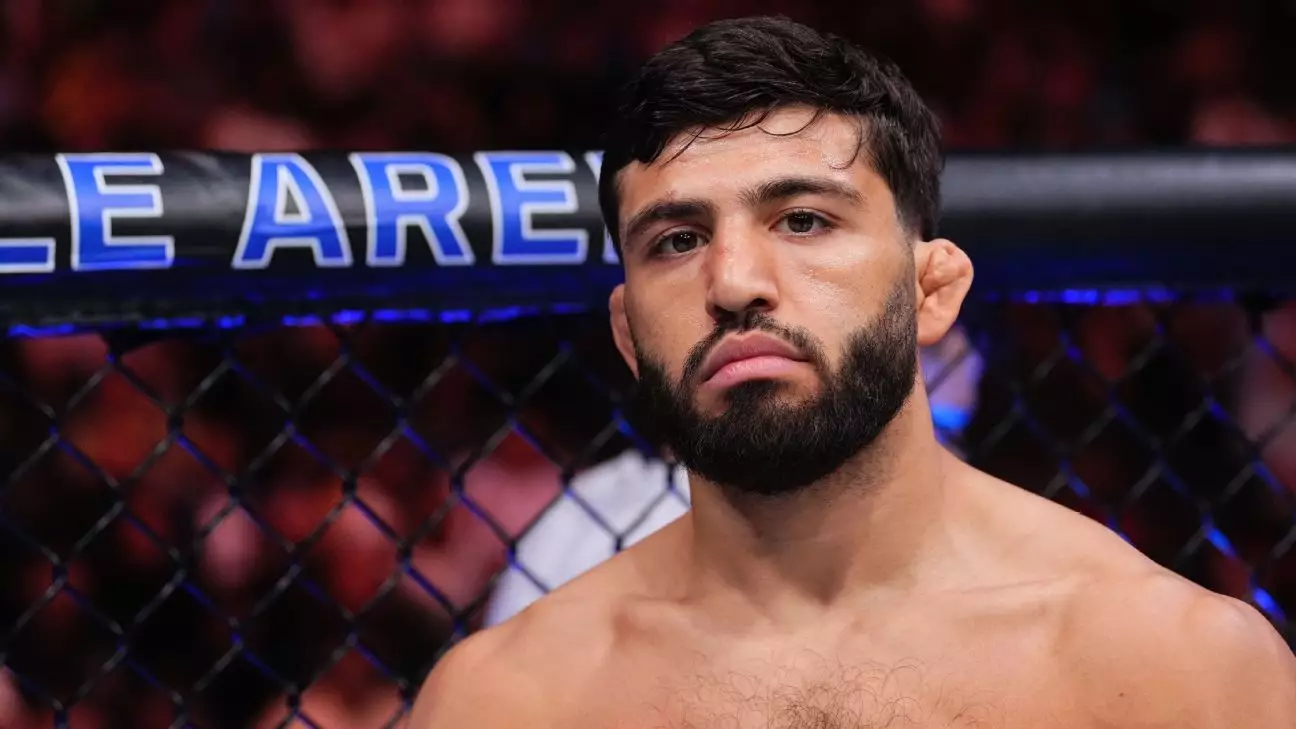In the fiercely competitive world of UFC, confidence often appears to be the key to victory. However, beneath the bravado lies a complex interplay of skills, psychology, and strategic preparation. Ilia Topuria’s recent triumph over Charles Oliveira exemplifies this paradox. His flamboyant pre-fight celebration and bold predictions masked an underlying reality: a fighter riding high on momentum and momentum alone. His confidence, while impressive, was tailored for the matchup at hand—an opponent whose strengths he believed he could neutralize effortlessly. But this perceived invincibility may not translate to all confrontations, particularly against fighters who bring a different arsenal to the octagon.
From Arman Tsarukyan’s perspective, Topuria’s bravado exposes a vulnerability—overconfidence. Tsarukyan suggests that Topuria’s assuredness stems from the matchup’s perceived ease rather than intrinsic greatness. In this light, Topuria’s recent accomplishments, impressive as they are, might be more a reflection of opportunity rather than absolute dominance. When facing a wrestler or a more versatile grappler—styles that Tsarukyan embodies—the confidence shifts. The true test of a fighter’s supremacy lies in their ability to adapt, not just in their bravado before the fight begins.
Strategic Dimensions and the Underlying Hierarchy
The current UFC landscape is marked by shifting alliances, abandoned belts, and carefully curated narratives. Topuria’s rapid ascent, punctuated by victories over notable opponents, adds excitement, but the industry’s fascination with ‘what’s next’ remains unresolved. His potential matchups are whispered about, but no definitive path has been carved out. The UFC’s reluctance to confirm a next opponent underscores the unpredictability of the division.
Meanwhile, Tsarukyan’s aspirations remain undimmed. His interrupted title shot against Islam Makhachev highlights a persistent hunger for recognition. Despite setbacks like back spasms, Tsarukyan’s recent winning streak and self-assuredness suggest he believes he offers a true barometer of talent. A victory over him, in his view, would solidify Topuria’s claim to elite status, elevating him beyond his current tier. The real question becomes whether Topuria’s recent string of wins against aging opponents can withstand the challenges posed by fighters like Tsarukyan, who combine skill, grit, and a readiness to exploit overconfidence.
The Psychological Game and the Future of Lightweight Contention
Behind every bout lies a battle of minds. Confidence, when rooted in genuine ability, propels fighters to new heights. But when misplaced or overly inflated, it can serve as a fragile façade. Tsarukyan’s dismissive attitude towards Topuria’s confidence hints at a broader truth—success in UFC isn’t merely about striking or grappling but also about mental resilience and strategic humility.
Topuria’s trajectory suggests he is on the cusp of greatness, but whether that greatness is sustainable remains uncertain. In UFC’s ruthless environment, fighters must constantly evolve, shun complacency, and respect their opponents’ capacity to adapt. The division’s future hinges on who can combine technical mastery with psychological fortitude. For now, Tsarukyan’s critique serves as a stark reminder: Confidence can win fights, but it is resilience, adaptability, and genuine skill that forge legends.
By scrutinizing the layers of strategy, psychology, and raw talent, it becomes clear that the UFC is a chessboard where confidence must be earned, not assumed. The fighters who learn this lesson stand the best chance of shaping their legacies—regardless of their current status or recent victories.


Leave a Reply